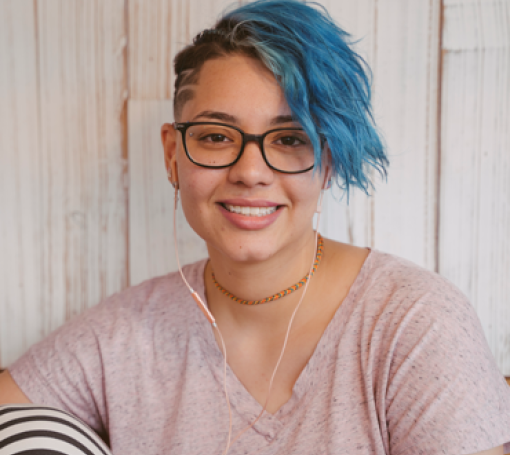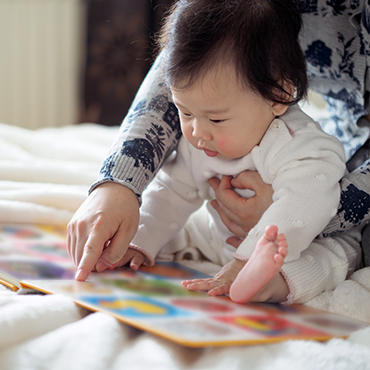Baby brains are like sponges! They are absorbing information nonstop. The first three years of a child’s life are especially critical for brain development. This is when the brain is most flexible and efficient at establishing new connections. Research has shown that the more words a baby hears, the better his or her vocabulary, communication, and social skills will be.
One of the most important ways a child can develop their vocabulary and eventually learn to read is by having books shared with them. Sharing books at an early age teaches children:
- How books work. The ability to read and write begins in childhood with the simple act of looking through a book. You don’t even have to read the story to your child. Simply point out objects, express enthusiasm, and turn pages! A child who knows how to turn the pages of a book is demonstrating one of the first steps in developing literacy.
- How fun books are! We want our kids to get hooked on books, not screens! By having fun experiences early on with books, children learn to love them and look forward to reading time with you. Spending time with your child and a book enhances your relationship and makes them feel loved.
- Printed words have meaning. Point at words as you read and find the matching illustration. Connecting printed words with objects helps a young, developing mind make connections that improve future literacy skills.
Reading not only helps children develop literacy skills and become better readers, it also helps them develop social and emotional skills. Research has shown that preschoolers who are read to more often are better able to empathize with other people. Stories allow children to step into the minds of others and expands their experiences beyond their day to day life.
Here are some tips for reading to your baby or toddler:
- Make reading a part of your daily routine. Just like bedtime and snack time, make a reading time!
- A few minutes is okay! Don’t force it, young attention spans are short.
- Keep books on hand. Have a book ready when you’re waiting for a meal at a restaurant, waiting for a doctor appointment, and sitting in the school pick up line.
- Pick sturdy books for young children! Board books or books with soft pages and multiple textures are great for babies.
- As children get older, we sometimes have to do more to capture their attention. You may have to become a bit of a performer to keep them engaged in the book.
- Talk about the pictures. Keep your child engaged by asking them to point out different things on the page. Say things like, “Look at the baby’s mouth! Where is your mouth?”
- Make different sounds. Say things like, “There’s a cow! A cow says moo!”
- Follow your child’s interest. If he or she points something out on the page or turns to a different page, comment on what he or she is looking at. “Oh, you found the apple! It looks like the apple you had this morning!”
- Make up your own story! You don’t have to read what is on the page. The greatest value in reading to a child is from the words they hear and the time you are spending together. Just flipping through the book and pointing at pictures counts as reading to your young child.
Getting kids hooked on books early on creates children with stronger reading and social skills. It’s also just plain fun. I hope these tips are helpful for your family. Happy reading!
Dr. Betsy Browder is a pediatrician in the Allegro Pediatrics Issaquah Highlands office.
Keep Reading
View All Posts
Summer Safety Tips
Summer is a season of fun and adventure, but it also brings unique safety challenges for kids. Dr. Brianna Label offers practical tips to help families stay safe all season long.

Nexplanon: A Guide for Teens and Parents
Nexplanon is a form of Long-Acting Reversible Contraception (LARC) offered at Allegro for birth control or to help manage painful periods. Learn how it works, its benefits, and potential side effects to help you and your teen make informed decisions together.


